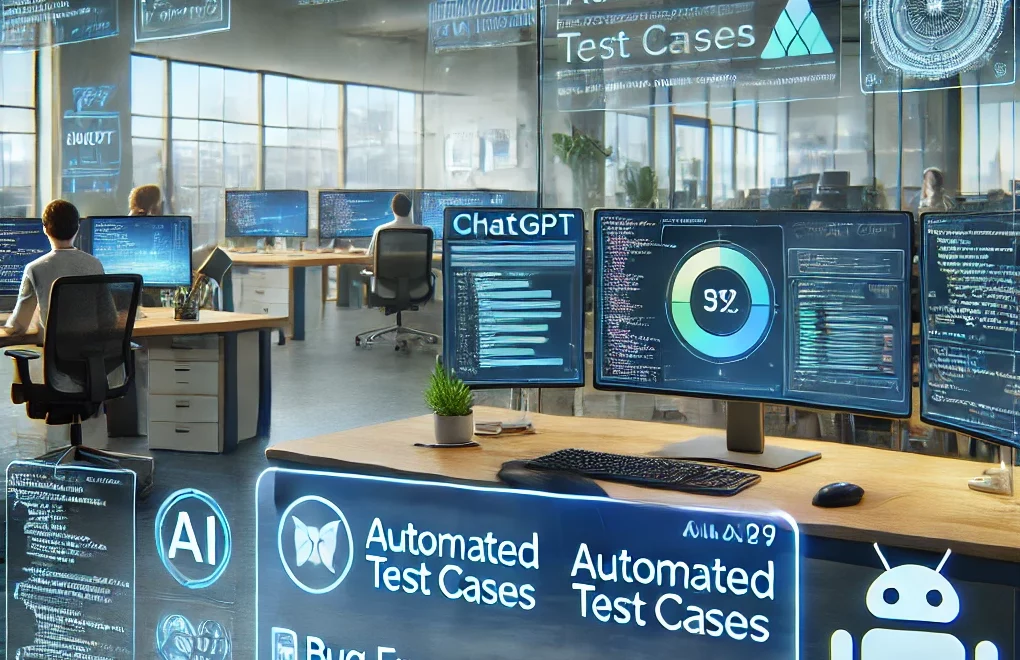AI as a Support, Not a Replacement
One of the key takeaways from the integration of AI in software testing is that AI functions as a support tool rather than a replacement for human testers. Tools like GitHub Copilot, for instance, serve as copilots that augment the tester's workflow without necessarily eliminating the need for human input. In software testing, AI helps in speeding up certain tasks, particularly during the initial preparation phases.
Microsoft Copilot, for example, automatically generates meeting minutes. These tools can summarize discussions involving up to 65 participants in a matter of minutes. Traditionally, summarizing such meetings would take anywhere between 15 to 60 minutes, but with Copilot, testers and developers only need to spend around 5 minutes reviewing the AI-generated summary before sharing it. This enhanced efficiency allows testers to focus on more complex tasks.
AI in Code Review and Testing Support
Another area where AI is proving invaluable is in code review and problem-solving. In the past, developers often spent hours researching solutions on Google or collaborating with colleagues to solve issues. Today, AI tools can provide rapid answers to even complex queries. For instance, a developer might spend an hour manually looking for a solution, but with AI, that same query can be addressed in seconds.
This shift is more evident in the younger generation of developers, who increasingly rely on AI for routine coding tasks, often skipping the need to search manually. For experienced developers dealing with ultra-specific issues, such as middleware processing in IBM MQ testing, AI can drastically reduce time spent on problem-solving. Developing a framework might have taken 36 hours of research and training in the past, but can now be realized in 4-5 hours with the help of AI.
Despite these gains in optimization, there's a cautionary note: while AI enhances efficiency, it does not necessarily lead to significant productivity gains in every scenario. There is a risk that the focus may shift away from understanding the functional aspects of development. As AI becomes more integrated, future roles in development might require not only coding skills but also expertise in creating and managing AI-driven prompts. This in return requires functional understanding of corporate processes.
AI and Architectural Complexity
One of the most tedious tasks in software development is understanding and managing complex IT architectures. Traditionally, defining and managing these architectures involves reading through hundreds of pages of diagrams, Visio documents, PDFs and more. With AI, this process has been streamlined. AI tools like Copilot can quickly synthesize extensive documentation, allowing architects and testers to focus on the core problem rather than wading through vast amounts of information.
AI also aids in deciphering log files during incidents. Traditionally, logs can be difficult to understand, filled with technical jargon, and require significant time to interpret. Now, AI tools can translate logs into plain language, helping testers quickly identify and resolve issues.
Efficiency Gains and Qualitative Improvements
The integration of AI in testing processes brings substantial efficiency gains. One real-world example of a large testing department shows a 60% reduction in time spent on average tasks, with a particularly striking 75% time savings in preparation phases. In the execution phase, the gains rise to 25% but it is the most substantial part in software testing. While AI automates much of the repetitive work, human testers can spend more time on validation, improving the overall quality of the work. This is especially important for routine tests, where AI helps reduce errors, leading to higher-quality outputs.
However, AI in testing has its limitations. Human experience, curiosity, and intuition remain irreplaceable when dealing with complex or creative problem-solving tasks. While AI is excellent at repetitive and routine tasks, it struggles with tasks that require a deep understanding of context, ethics, or non-standard testing environments.
Challenges: GDPR, Methodology, and Mindset
As AI becomes more integrated into software testing, several challenges need to be addressed. For one, compliance with data privacy regulations like the General Data Protection Regulation (GDPR) is critical. AI tools that handle large amounts of data must be designed to ensure that sensitive information is handled appropriately.
Methodological challenges also arise, as the implementation of AI in testing may require changes to established workflows. The shift to AI-driven testing tools necessitates a new mindset in development teams—one that embraces collaboration between humans and machines. Teams must also be willing to adapt their methodologies to leverage AI to its fullest potential.
Conclusion
The impact of AI on software testing is transformative. From automating routine tasks and reducing time spent on code review to supporting complex architectural decisions, AI enhances both the efficiency and quality of software testing. However, the human element remains critical, especially for tasks that require creativity, intuition, and deep functional understanding.
In the near future, as AI tools become more advanced, we may see a shift in the roles within software development. Developers and testers will need to combine their coding skills with a strong understanding of AI prompt engineering to maximize the benefits of these tools. While AI might reduce the need for traditional testing methods, it will also create new opportunities for innovation and problem-solving in the ever-evolving world of software development.



